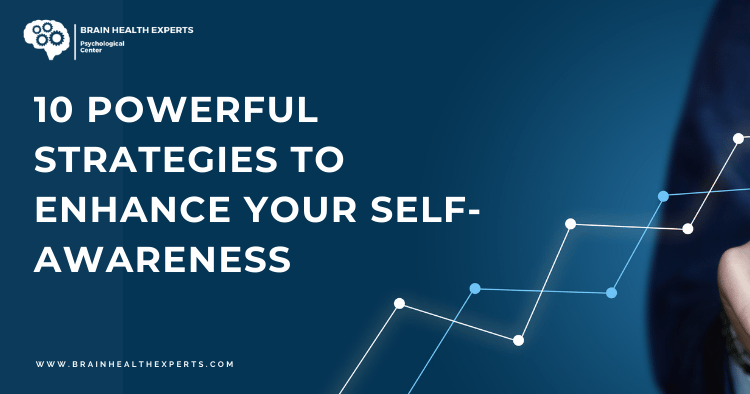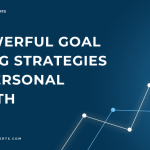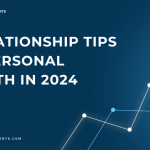Table of Contents
- Understanding Self-Awareness
- Practice Mindfulness
- Journaling for Clarity
- Seek Feedback from Others
- Engage in Self-Reflection
- Set Personal Goals
- Take Personality Assessments
- Meditation and Deep Breathing
- Limit Social Media Consumption
- Celebrate Your Progress
Understanding Self-Awareness
Self-awareness is the ability to recognize and understand your own emotions, thoughts, and behaviors. It involves being conscious of how your actions affect others and understanding your strengths and weaknesses. Developing self-awareness can lead to improved decision-making, better relationships, and a greater sense of fulfillment in life.
Self-awareness is the foundation for emotional intelligence. The more you understand yourself, the better you can relate to others.
Why is Self-Awareness Important?
Self-awareness helps you:
- Improve emotional intelligence
- Foster better relationships
- Make informed decisions
- Set and achieve personal goals
For deeper insights, consider exploring Psychology Today’s article on self-awareness.
Practice Mindfulness
Mindfulness is the practice of being present in the moment without judgment. This technique helps you become aware of your thoughts and feelings as they occur, enabling you to respond to situations more thoughtfully rather than reactively.
Mindfulness can be a game-changer. It allows you to step back and observe your thoughts, creating space for intentional actions.
How to Start Mindfulness:
- Breathing Exercises: Focus on your breath for several minutes each day.
- Body Scan: Pay attention to the sensations in your body.
- Mindful Walking: Engage in walking while being aware of each step you take.
Benefits:
Mindfulness can enhance your self-awareness by allowing you to observe your thoughts and feelings without becoming overwhelmed. For further reading, check out Mindful.org’s guide to mindfulness.
Journaling for Clarity
Journaling is a powerful tool for self-discovery. By writing down your thoughts and feelings, you can gain clarity and insight into your motivations and behaviors.
Writing can be like holding a mirror to your soul. It reflects not just your thoughts but your true self.
Tips for Effective Journaling:
- Daily Entries: Write at the same time each day to establish a routine.
- Prompts: Use prompts like “What made me happy today?” or “What challenges did I face?”
- Reflect: Review your entries weekly to identify patterns.
Benefits:
Journaling encourages introspection and can help you recognize areas for personal growth. Here’s a helpful guide on effective journaling techniques.
Seek Feedback from Others
Asking for feedback from friends, family, or colleagues can provide valuable insights into how others perceive you. This external perspective can help you understand how your actions impact those around you.
Feedback is a gift. It can be uncomfortable, but it often leads to growth and deeper self-awareness.
How to Ask for Feedback:
- Be Specific: Ask about particular behaviors or situations.
- Stay Open-Minded: Be prepared to receive constructive criticism.
- Follow Up: Thank them for their feedback and ask for clarification if needed.
Benefits:
This practice can uncover blind spots and help you grow in areas you might not have considered. For more on how to seek feedback, check out Harvard Business Review’s article.
Engage in Self-Reflection
Self-reflection involves looking back on your experiences and evaluating them. This can be done through various means, including meditation, discussions, or simply taking time to think.
Self-reflection is your opportunity to learn from your experiences. It’s how you turn insights into action.
Techniques for Self-Reflection:
- Monthly Reviews: Set aside time each month to reflect on your experiences.
- Guided Questions: Use questions like “What did I learn this month?” or “How did I handle challenges?”
- Visual Mapping: Create mind maps to visualize your thoughts.
Benefits:
Self-reflection promotes deeper understanding and can lead to more thoughtful actions moving forward. For more on self-reflection, visit Greater Good Science Center’s resources.
Set Personal Goals
Setting goals helps you focus on what you want to achieve in life. By defining your objectives, you can create a roadmap to enhance your self-awareness and personal growth.
Goals are your compass. They guide you and keep you aligned with your true self.
Steps to Setting Goals:
- Identify Areas of Focus: Determine which aspects of your life you want to improve.
- SMART Goals: Ensure your goals are Specific, Measurable, Achievable, Relevant, and Time-bound.
- Review Regularly: Reassess your goals periodically to ensure they remain relevant.
Benefits:
Goal-setting gives you a clearer sense of purpose and direction. For more about effective goal-setting, read MindTools’ guide.
Take Personality Assessments
Personality assessments can provide insights into your character traits, preferences, and tendencies. Tools like the Myers-Briggs Type Indicator (MBTI) or the Enneagram can be helpful in understanding your personality.
Knowing your personality type can be a revelation. It’s like finding the missing puzzle piece to understanding yourself.
Popular Assessments:
- Myers-Briggs Type Indicator (MBTI): Explores personality types based on preferences.
- Enneagram: Identifies nine personality types, focusing on motivations.
- Big Five Personality Test: Measures five key personality traits.
Benefits:
Understanding your personality can enhance your self-awareness and improve your interactions with others. For more, check out 16 Personalities.
Meditation and Deep Breathing
Meditation and deep breathing exercises can help center your thoughts and emotions, promoting a greater sense of self-awareness. These practices encourage relaxation and mental clarity.
Meditation is a mental gym. The more you practice, the stronger your self-awareness becomes.
Techniques:
- Guided Meditation: Use apps like Headspace or Calm.
- Deep Breathing: Practice inhaling for a count of four, holding for four, and exhaling for four.
- Visualization: Imagine a peaceful scene to help clear your mind.
Benefits:
Regular meditation can lead to increased self-awareness, emotional regulation, and reduced stress. For more information, visit Mindful.org’s meditation resources.
Limit Social Media Consumption
While social media can be a great way to connect, it can also distort your self-perception and distract you from self-awareness. Being mindful of your usage can help refocus your attention.
Social media is a double-edged sword. Use it wisely to enhance your life rather than distract from it.
Tips to Limit Usage:
- Set Time Limits: Use apps to track and limit your social media time.
- Unfollow Negative Influences: Curate your feed to include only positive and uplifting accounts.
- Engage in Offline Activities: Spend more time on hobbies and interests that don’t involve screens.
Benefits:
Reducing social media time can lead to improved mental well-being and greater focus on personal goals. For more on this topic, check out The Center for Humane Technology.
Celebrate Your Progress
Recognizing and celebrating your growth is essential in the journey of self-awareness. Acknowledging your achievements reinforces positive behavior and motivates you to continue.
Celebrating small wins keeps your motivation alive. Each step forward is a reason to rejoice!
Ways to Celebrate:
- Create a Success Journal: Write down your accomplishments, big and small.
- Share with Friends: Discuss your progress with friends or family.
- Reward Yourself: Treat yourself for reaching milestones.
Benefits:
Celebrating progress fosters a growth mindset and encourages continued self-improvement. For more insights on celebrating achievements, check out Psychology Today’s article.
FAQs
Q: How long does it take to develop self-awareness?
A: Developing self-awareness is a lifelong journey that varies for each individual. Regular practice of the strategies mentioned can lead to noticeable improvements over time.
Q: Can self-awareness help in professional settings?
A:





